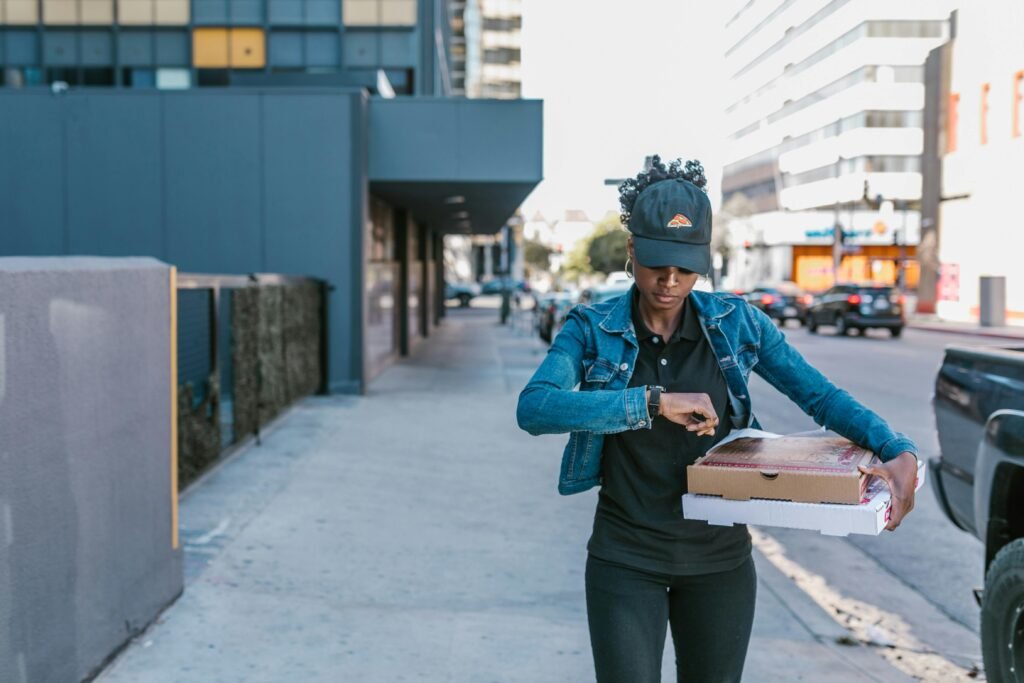Why Campus Safety Matters More Than Ever

First of all, let’s talk about why staying safe on campus is so important. University campuses around the world have thousands of safety problems every year. These can be anything from someone stealing your backpack to more serious crimes.
Whether you’re just starting university or you’ve been there for a while, learning how to stay safe isn’t just a good idea—it’s really, really important for staying healthy and doing well in school.
Therefore, this guide will teach you the best ways to stay safe while having an amazing university experience.
Essential Personal Safety Fundamentals
Master Your Situational Awareness
To begin with, situational awareness is like having superpowers for staying safe. In other words, it means paying attention to what’s happening around you. Here’s how to do it:
- First, look around you often, especially when it’s getting dark outside
- Next, trust your gut feelings when something doesn’t feel right
- Also, don’t stare at your phone too much when you’re walking by yourself
- Finally, always know where the exits are when you go into new buildings
Emergency Communication Protocols
Additionally, you need to have a good plan for talking to people when there’s an emergency. Here’s what you should do:
- To start, put important emergency phone numbers in your phone so you can call them quickly
- Then, tell your friends where you are when you’re out at night
- Moreover, make plans to check in with friends during late study sessions
- Lastly, download safety apps that your school gives you
Residence Hall Security Best Practices
Dormitory Protection Strategies
Moving on to your living space, you want to make your room as safe as possible. Therefore, follow these simple rules:
- Never prop open doors that lead outside your building
- Always check who someone is before letting them into your building
- Furthermore, keep your valuable stuff locked up in drawers or a safe
- Immediately tell your resident advisor if you see someone suspicious
Roommate Safety Agreements
Similarly, working with your roommates on safety is super important. As a result, you should:
- First of all, share emergency contact information with each other
- Additionally, talk about rules for having guests stay overnight
- Also, make plans for what to do if there’s a fire or other emergency
- Finally, agree on quiet times so everyone can sleep well
Transportation and Commute Safety
Walking Safety Guidelines
Now let’s talk about staying safe when you’re walking around campus. Most importantly, here’s what you need to do:
- Always use paths that have good lighting when it’s dark
- Whenever possible, walk with friends during late hours or on empty paths
- In addition, wear bright or reflective clothes so cars can see you
- Also, carry safety items like whistles (but only if they’re allowed where you live)
Public Transportation Precautions
Furthermore, when you’re using buses or campus shuttles, remember these tips:
- First, wait for transportation in areas where there are other people around
- Then, try to sit near the bus driver or other workers when you can
- Meanwhile, keep your bags close to you and watch out for pickpockets
- Lastly, have a backup plan in case your usual transportation doesn’t work
Digital Security and Cyber Safety
Online Privacy Protection
Next, let’s discuss keeping yourself safe online. In today’s world, this is just as important as physical safety:
- To begin with, check your social media privacy settings so strangers can’t see your posts
- Never post where you are in real-time on social media
- Furthermore, use strong, different passwords for all your accounts
- Finally, turn on two-factor authentication for important apps
Campus Wi-Fi Security Measures
Similarly, when you’re using your school’s internet, be smart about it:
- Before anything else, make sure you’re connecting to the real school network
- Never check your bank account on public Wi-Fi
- Instead, use a VPN service to protect your information
- Always log out completely when using shared computers
Party and Social Event Safety
Alcohol and Substance Awareness
Moving on to social events, it’s important to stay safe while having fun. Therefore:
- Always watch your drinks and never leave them alone
- Choose trusted friends to help keep you safe at parties
- Learn the warning signs of alcohol poisoning
- Know where to get help if you or someone else has problems with drugs or alcohol
Social Gathering Protocols
Additionally, when you’re going to parties or events, follow these smart rules:
- Before you leave, tell someone you trust where you’re going and when you’ll be back
- Always go with reliable friends and check in with each other regularly
- Plan how you’ll get home safely before you start drinking
- Most importantly, trust yourself and leave if you feel uncomfortable
Emergency Preparedness Essentials
Crisis Response Planning
Now, let’s prepare for emergencies. First and foremost, you need to have a plan:
- Memorize your school’s emergency phone numbers (not just 911)
- Find out where all the emergency phones are around campus
- Practice the routes you’d take to get out of buildings during an emergency
- Learn how your school’s alert system works
Personal Emergency Kits
In addition, you should have supplies ready for unexpected situations:
- Pack first aid items like bandages and antiseptic
- Keep a flashlight and extra batteries in case the power goes out
- Save some emergency cash for transportation or phone calls
- Store copies of important documents somewhere safe but easy to reach
Building Relationships with Campus Resources
Security Personnel Connections
Furthermore, getting to know the people who keep your campus safe is really helpful:
- Try to learn the names of security officers in your area
- Go to safety presentations that your school’s security department hosts
- Report problems right away instead of ignoring them
- Join safety walks to help make your campus even safer
Support Service Utilization
Also, your school has lots of resources to help you stay safe and healthy:
- Connect with counseling services when you’re stressed or need emotional support
- Join student groups that focus on safety education
- Take self-defense classes that your school offers
- Participate in programs that help build a safe community in your dorm
Technology Tools for Enhanced Protection
Safety Applications and Devices
In our modern world, technology can help keep you safe:
- Download safety apps that your school provides with emergency features
- Carry personal alarms that make loud sounds when you need help
- Use location-sharing apps with your family so they know where you are
- Consider wearable safety devices that can alert people if you’re in trouble
Communication Technology Best Practices
Finally, make sure your devices are ready for emergencies:
- Keep your phone charged and carry a portable charger
- Store emergency contacts where you can find them easily on your phone
- Turn on location services so help can find you if needed
- Back up important information regularly so you don’t lose it
Final Thoughts
To sum up, staying safe on campus isn’t about being scared all the time. Instead, it’s about making smart choices that keep you healthy while you enjoy all the amazing things university has to offer. When you use these proven strategies, you’re investing in both your safety and your success in school.
Remember this important truth: being prepared makes you feel confident. The time you spend learning about safety today could be incredibly valuable later on.
In conclusion, stay alert, stay connected with friends and family, and most importantly—trust yourself. When you combine your natural instincts with these practical strategies, you’ll help make sure your university experience is both amazing and secure.
Check out: Exclusive Financial Aid to Secure While Studying in the UK: Scholarships



